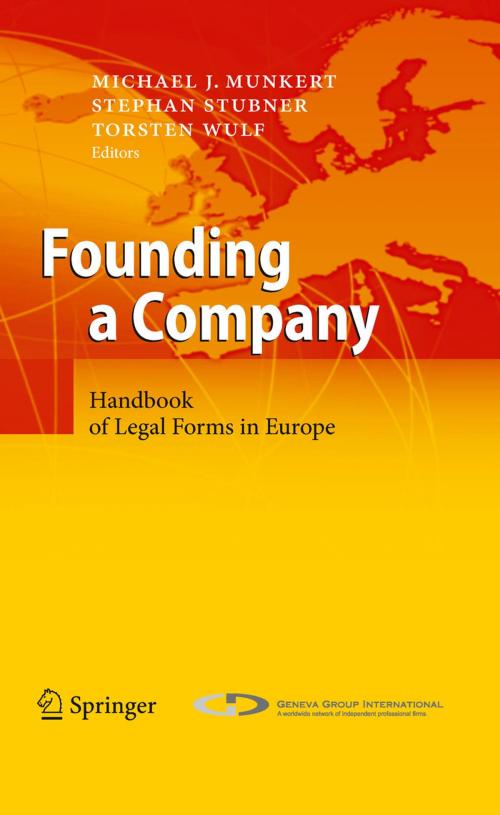Founding a Company
Handbook of Legal Forms in Europe
Business & Finance, Career Planning & Job Hunting, Entrepreneurship, Entrepreneurship & Small Business| Author: | ISBN: | 9783642112591 | |
| Publisher: | Springer Berlin Heidelberg | Publication: | June 14, 2010 |
| Imprint: | Springer | Language: | English |
| Author: | |
| ISBN: | 9783642112591 |
| Publisher: | Springer Berlin Heidelberg |
| Publication: | June 14, 2010 |
| Imprint: | Springer |
| Language: | English |
From our daily practice as scholars, consultants and entrepreneurs we know how critical it is to make the right decisions that can shape the future of a company. One of the earliest of such decisions is surely the selection of the appropriate legal form as it is hardly reversible and has major implications on the running business. Accordingly, we can nd a wealth of information about the pros and cons of speci c legal forms. However, so far there is only scarce information available once you decide to enter a foreign market. There are offerings, e.g. from the Chambers of Commerce and you can search the Internet. When information is provided in the local language, comprehension becomes dif cult. Furthermore, the material that is available today only seldom allows for a structured analysis and comparison of legal forms in different countries. From discussions with entrepreneurs we know that this situation has not only been cumbersome for us, but actually everybody who is thinking about starting up a business or widening the operations across country borders is faced with the complex task of deciding on a legal form.
From our daily practice as scholars, consultants and entrepreneurs we know how critical it is to make the right decisions that can shape the future of a company. One of the earliest of such decisions is surely the selection of the appropriate legal form as it is hardly reversible and has major implications on the running business. Accordingly, we can nd a wealth of information about the pros and cons of speci c legal forms. However, so far there is only scarce information available once you decide to enter a foreign market. There are offerings, e.g. from the Chambers of Commerce and you can search the Internet. When information is provided in the local language, comprehension becomes dif cult. Furthermore, the material that is available today only seldom allows for a structured analysis and comparison of legal forms in different countries. From discussions with entrepreneurs we know that this situation has not only been cumbersome for us, but actually everybody who is thinking about starting up a business or widening the operations across country borders is faced with the complex task of deciding on a legal form.















